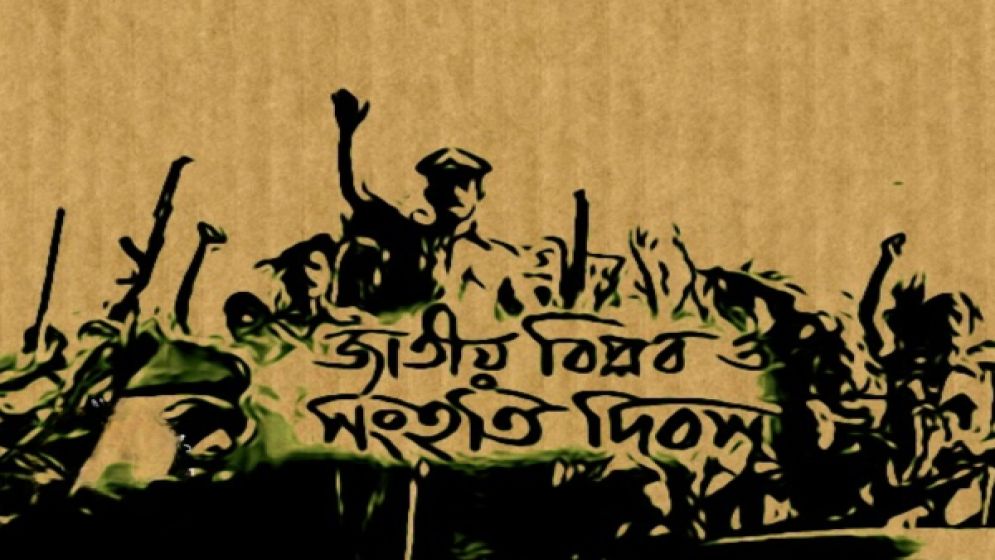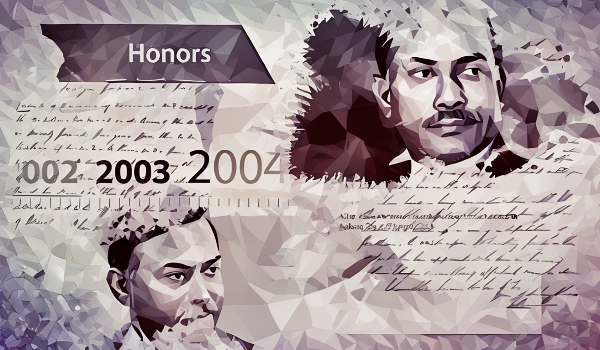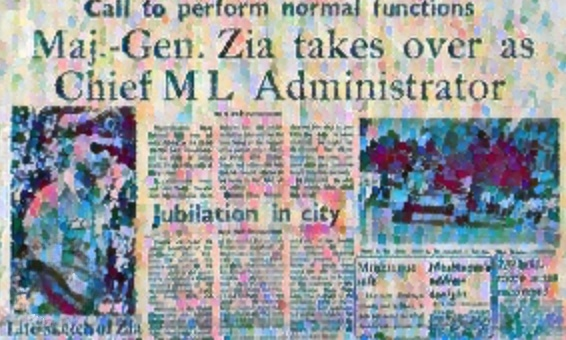November 7: A day of revolution, unity, and the dawn of a new Bangladesh

November 7, 1975, stands as one of the most significant days in the history of Bangladesh, a day that marks the National Revolution and Solidarity Day.
This day represents a collective effort to safeguard the nation's independence and unify people from all walks of life.
It witnessed both soldiers and civilians coming together to reshape the future of Bangladesh, overcoming plots that threatened its sovereignty. It was a defining moment that sowed the seeds of resilience, unity, and patriotism in the hearts of the Bangladeshi people.
To fully appreciate the importance of November 7, one must first understand the turbulent events that led up to it. Following the tragic assassination of Bangabandhu Sheikh Mujibur Rahman on August 15, 1975, Bangladesh was thrown into political instability.
On November 3, four prominent national leaders were brutally killed in Dhaka Central Jail, deepening the country's crisis.
Amid this turmoil, a power struggle erupted within the military, with Brigadier Khaled Musharraf staging a coup and detaining Major General Ziaur Rahman, a revered military leader and a hero of Bangladesh's liberation movement.
Musharraf’s actions were met with widespread disapproval, both among the military and the public, who saw it as an undemocratic power grab.
The streets of Dhaka were filled with tension, and many feared that the nation was on the brink of authoritarian rule, putting its hard-earned independence at risk. But as the days of uncertainty stretched on, hope began to take root among both soldiers and civilians.
In the quiet hours of November 6, a powerful and silent uprising began to form within the ranks of the military.
Driven by a strong sense of patriotism and duty, the soldiers resisted efforts to curtail their freedoms. They rose not in conflict with their fellow citizens but in defense of justice and liberty.
By dawn on November 7, the "sepoys"—the foot soldiers—broke through the cantonment barriers and freed Major General Ziaur Rahman.
Their courage sparked a wave of support from ordinary people, who joined them in the streets of Dhaka. Together, they filled the air with chants of solidarity, joy, and a profound pride in their nation.
As historian Anthony Mascarenhas wrote in Bangladesh: A Legacy of Blood, this was the moment when “the nightmare of oppression was shattered” by the unity of the people and their soldiers.

A new found and hard earned
freedom
Much like the patriots who fought for independence in 1971, the citizens and soldiers who united on November 7, 1975, understood the precious value of their hard-earned freedom.
They recognized that for Bangladesh to endure, unity was essential. Just as they had rallied together to defend their sovereignty in 1975, a similar spirit was seen during the 2024 revolution.
In that year, the military's decision to stand against an oppressive regime marked a pivotal moment, leading to the downfall of Sheikh Hasina’s 16-year autocratic rule, echoing the legacy of National Revolution and Solidarity Day.
When Major General Ziaur Rahman spoke to the nation over Radio Bangladesh on November 7, his message was simple yet powerful.
He called for the people to put aside their differences, to work towards peace, and to unite for the future of Bangladesh.
In the midst of great uncertainty, he strongly opposed bloodshed, urging both soldiers and citizens to stay calm and protect one another.
Zia’s leadership transformed the national mood from one of despair to one of hope. Many compared his style to other transformative world leaders, such as Turkey’s Mustafa Kemal Atatürk and South Korea’s Park Chung Hee, who led their nations through periods of profound change and development.
Like them, Zia championed self-reliance, unity, and respect for all citizens. As Zia famously said, “This is our country, our land… we must trust in our own strength, not look outward for rescue.”
Following November 7, Ziaur Rahman introduced a vision that would shape Bangladesh's future: Bangladeshi nationalism.
While the original Constitution referred to citizens as “Bengali,” Zia believed the term should be broadened to encompass all people in Bangladesh, regardless of ethnicity, language, or religion.
He wanted every citizen to proudly identify as a Bangladeshi. His vision of nationalism transcended cultural and religious divides, promoting equality and unity under a shared identity.

The birth of Bengladeshi nationalism
This idea of "Bangladeshi nationalism" resonated deeply with the people across the country. It was a powerful reminder that true patriotism is not merely about words, but about overcoming differences and uniting for a common cause.
Zia’s inclusive vision laid the groundwork for the Bangladesh Nationalist Party (BNP), a political movement founded on principles of diversity, unity, and people-centered governance.
The spirit of November 7 continues to be echoed in literature and poetry, which capture its themes of unity and resilience.
In the words of Rabindranath Tagore, “Where the mind is without fear and the head is held high; where knowledge is free,” we see the heart of Zia’s vision for Bangladesh—a country where people, regardless of their backgrounds, stand together as one.
Tagore’s call for a nation “not broken up into fragments by narrow domestic walls” reflects the essence of November 7, a day when Bangladesh aspired to unity beyond political divides.
Similarly, poets like Kazi Nazrul Islam captured the rebellious spirit that November 7 represents. His words, “We rise up, undaunted, we move forward,” embody the resilience displayed by soldiers and civilians on that historic day.
Nazrul’s defiance against oppression aligns closely with the courage of those who risked everything to safeguard Bangladesh’s sovereignty.
National Revolution and Solidarity Day serves as a lasting reminder of what Bangladesh can achieve through unity, patriotism, and self-reliance.
The bravery displayed on that day not only ensured the freedom of Major General Ziaur Rahman but also set the country on a new course toward stability and independence.
The military became more professional, and the values of patriotism and service to the nation were reinvigorated across the country.
Under Zia’s leadership, Bangladesh forged a distinct identity—one that embraces its diversity while honoring its legacy of independence.
As he once stated, “Our national identity is not just a name, it is a commitment to equality and respect.” His legacy endures in the hearts of those who continue to strive for a united, prosperous Bangladesh. Ziaur Rahman’s journey—from the battlefield to the radio station on that pivotal day—remains a powerful symbol of courage, a testament to the strength of a people united in their pursuit of justice and freedom.
Let us remember November 7, not merely as a historical date, but as a timeless emblem of what we can accomplish when we stand together for the greater good.
While challenges may still lie ahead, with the same spirit of unity and determination that defined that day, Bangladesh will continue to rise.
May the ideals of November 7 guide us, inspire us, and remind us that, above all, we are Bangladeshis—united in our love for our country and committed to building a brighter tomorrow.
—--
H. M. Nazmul Alam is an Eminent Academic, Journalist, and Political Analyst.

